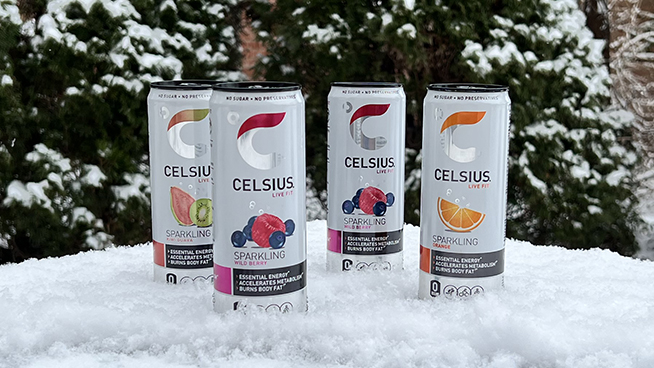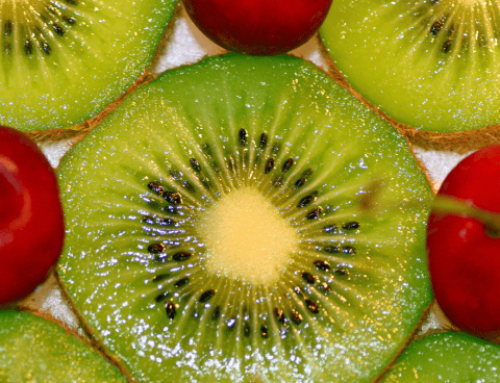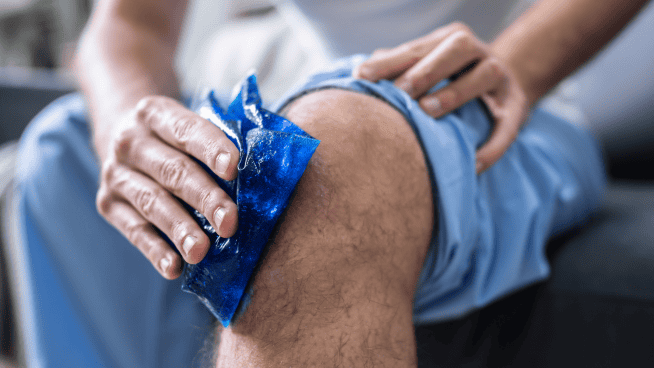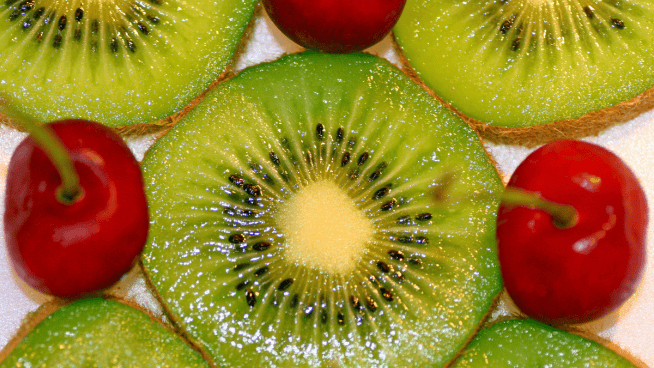Is Celsius Healthy?
Celsius drinks are the new big thing! Celsius is an energy drink, not a health drink. The Celsius brand product list includes Originals, Naturals, On-The-Go, and HEAT.
Celsius marketing literature states their products are “fitness drinks that accelerate metabolism, burn body fat, and provide healthy energy.”
According to the company website, Celsius “stands out against other brands” because their drinks are made with “healthier” ingredients like ginger and green tea.
Is Celsius actually healthy, or are they just really good at marketing and convincing customers that their product is totally different from a Red Bull or Monster?

Celsius Ingredients
This claim is not FDA-approved. All Celsius varieties contain 1.8 total grams of the “MetaPlus® proprietary blend” consisting of:
Taurine
In combination with caffeine, taurine provides improved exercise capacity. Most adults consume about 50 mg daily from milk, eggs, fish, and meat. Many energy drinks include as much as 1000 mg of taurine per serving. The exact content in Celsius is not on the can label.
Guarana
Guarana is a plant native to the Amazon. It has stimulant and diuretic properties and therapeutic properties against headaches, fever, and cramps. The caffeine content of a Guarana bean is about four times that of a coffee bean. The caffeine content in Guarana is not included in the percentage of caffeine listed on a product label. Therefore you are getting more than the reported dose of caffeine than is listed on the product label.
Caffeine, 200 mg4
Caffeine is a natural brain and central nervous system stimulant found in tea, coffee, and cocoa plants. It raises heart rate and blood pressure.
Caffeine is thermogenic, and the level of it in one can suggest it is the caffeine that is doing most of the thermogenic, calorie-burning work in Celsius drinks.
Caffeine has a half-life of about five hours. This means five hours after consuming one Celsius containing 200mg of caffeine, 100 mg will remain in your body. Every five hours, the level is cut in half. Therefore Celsius advertising claims to provide a sustained energy source.
The effect of caffeine on a given individual is dependent on age, body weight, and personal sensitivity to the drug. If you regularly consume caffeinated drinks, it is entirely likely you may not notice any energy-boosting effect.
Caffeine Side Effects:
- anxiety
- shakiness
- irritability
- upset stomach
- rapid heart rate
- headache
- difficulty concentrating
- dehydration
Energy drinks are designed to stimulate brain function, increase alertness, and increase concentration.
Glucuronolactone (percent not stated)
Glucuronolactone is a natural compound produced by glucose metabolism. It is reported to promote joint health and lower abnormally high cholesterol or triglycerides.
Ginger Extract
Ginger extract calms nausea, soothes sore muscles, eases arthritis symptoms, lowers blood sugar, eases period pains, and relieves indigestion.
Green Lead Extract (standardized to 15%)
EGCG can help prevent chronic diseases like heart disease, diabetes, osteoporosis, and cancer.
In addition to the “MetaPlus10 proprietary blend,” all Celsius brand products include some combination of:
- Vitamin C (60mg)
- Riboflavin (1.7mg)
- Niacin (20mg)
- Vitamin B6 (2mg)
- Vitamin B12 (6mcg)
- Biotin (300mcg)
- Pantothenic Acid (10mg)
- Calcium (50mg)
- Chromium (50mcg)
- Citruline, (2g)
- Sodium, 5 mg
Is Celsius Healthy?
For teens and younger children consuming Celsius or any other energy or sports drink is not healthful. The primary ingredient in the various Celsius drinks is caffeine. Celsius drinks are sugar-free. The primary energy source for competitive brand energy and sports drinks is caffeine and sugar.
It is estimated that 31% of children 12 to 17 years of age regularly consume energy drinks. Regular consumption of energy drinks can negatively affect heart and brain development.
It is recommended that children in this age group consume no more than 1.14 mg of caffeine per pound of bodyweight daily. This translates to about 85 mg of caffeine—or one cup of coffee.
One can of Celsius contains 200 mg of caffeine. The recommended use level is no more than two cans daily.
Teens consuming soda, sports water, or energy drinks rather than water or milk do not get the minerals and essential vitamins during their growing years.
Read More:
RECOMMENDED FOR YOU
Is Celsius Healthy?
Celsius drinks are the new big thing! Celsius is an energy drink, not a health drink. The Celsius brand product list includes Originals, Naturals, On-The-Go, and HEAT.
Celsius marketing literature states their products are “fitness drinks that accelerate metabolism, burn body fat, and provide healthy energy.”
According to the company website, Celsius “stands out against other brands” because their drinks are made with “healthier” ingredients like ginger and green tea.
Is Celsius actually healthy, or are they just really good at marketing and convincing customers that their product is totally different from a Red Bull or Monster?

Celsius Ingredients
This claim is not FDA-approved. All Celsius varieties contain 1.8 total grams of the “MetaPlus® proprietary blend” consisting of:
Taurine
In combination with caffeine, taurine provides improved exercise capacity. Most adults consume about 50 mg daily from milk, eggs, fish, and meat. Many energy drinks include as much as 1000 mg of taurine per serving. The exact content in Celsius is not on the can label.
Guarana
Guarana is a plant native to the Amazon. It has stimulant and diuretic properties and therapeutic properties against headaches, fever, and cramps. The caffeine content of a Guarana bean is about four times that of a coffee bean. The caffeine content in Guarana is not included in the percentage of caffeine listed on a product label. Therefore you are getting more than the reported dose of caffeine than is listed on the product label.
Caffeine, 200 mg4
Caffeine is a natural brain and central nervous system stimulant found in tea, coffee, and cocoa plants. It raises heart rate and blood pressure.
Caffeine is thermogenic, and the level of it in one can suggest it is the caffeine that is doing most of the thermogenic, calorie-burning work in Celsius drinks.
Caffeine has a half-life of about five hours. This means five hours after consuming one Celsius containing 200mg of caffeine, 100 mg will remain in your body. Every five hours, the level is cut in half. Therefore Celsius advertising claims to provide a sustained energy source.
The effect of caffeine on a given individual is dependent on age, body weight, and personal sensitivity to the drug. If you regularly consume caffeinated drinks, it is entirely likely you may not notice any energy-boosting effect.
Caffeine Side Effects:
- anxiety
- shakiness
- irritability
- upset stomach
- rapid heart rate
- headache
- difficulty concentrating
- dehydration
Energy drinks are designed to stimulate brain function, increase alertness, and increase concentration.
Glucuronolactone (percent not stated)
Glucuronolactone is a natural compound produced by glucose metabolism. It is reported to promote joint health and lower abnormally high cholesterol or triglycerides.
Ginger Extract
Ginger extract calms nausea, soothes sore muscles, eases arthritis symptoms, lowers blood sugar, eases period pains, and relieves indigestion.
Green Lead Extract (standardized to 15%)
EGCG can help prevent chronic diseases like heart disease, diabetes, osteoporosis, and cancer.
In addition to the “MetaPlus10 proprietary blend,” all Celsius brand products include some combination of:
- Vitamin C (60mg)
- Riboflavin (1.7mg)
- Niacin (20mg)
- Vitamin B6 (2mg)
- Vitamin B12 (6mcg)
- Biotin (300mcg)
- Pantothenic Acid (10mg)
- Calcium (50mg)
- Chromium (50mcg)
- Citruline, (2g)
- Sodium, 5 mg
Is Celsius Healthy?
For teens and younger children consuming Celsius or any other energy or sports drink is not healthful. The primary ingredient in the various Celsius drinks is caffeine. Celsius drinks are sugar-free. The primary energy source for competitive brand energy and sports drinks is caffeine and sugar.
It is estimated that 31% of children 12 to 17 years of age regularly consume energy drinks. Regular consumption of energy drinks can negatively affect heart and brain development.
It is recommended that children in this age group consume no more than 1.14 mg of caffeine per pound of bodyweight daily. This translates to about 85 mg of caffeine—or one cup of coffee.
One can of Celsius contains 200 mg of caffeine. The recommended use level is no more than two cans daily.
Teens consuming soda, sports water, or energy drinks rather than water or milk do not get the minerals and essential vitamins during their growing years.
Read More:










